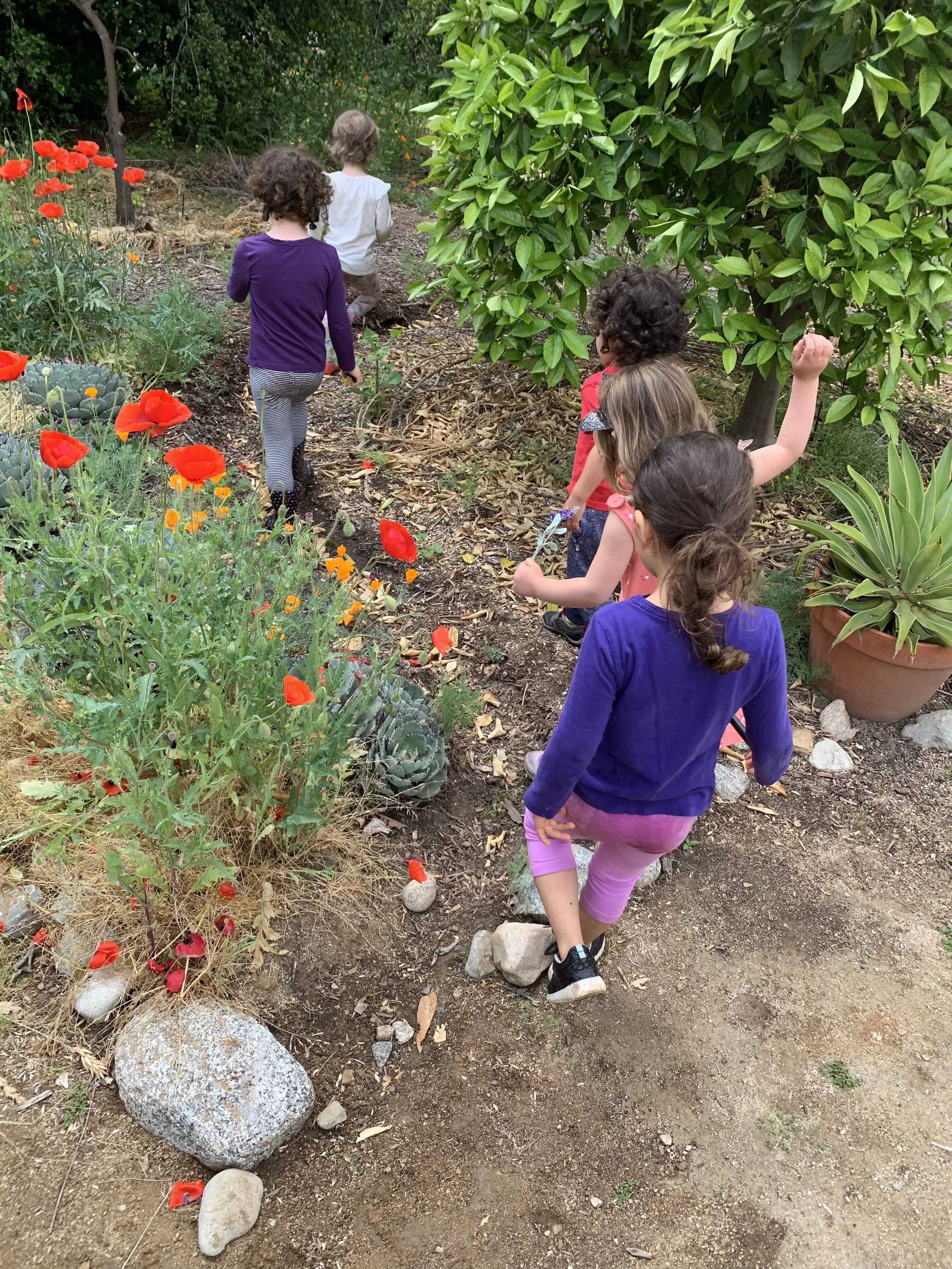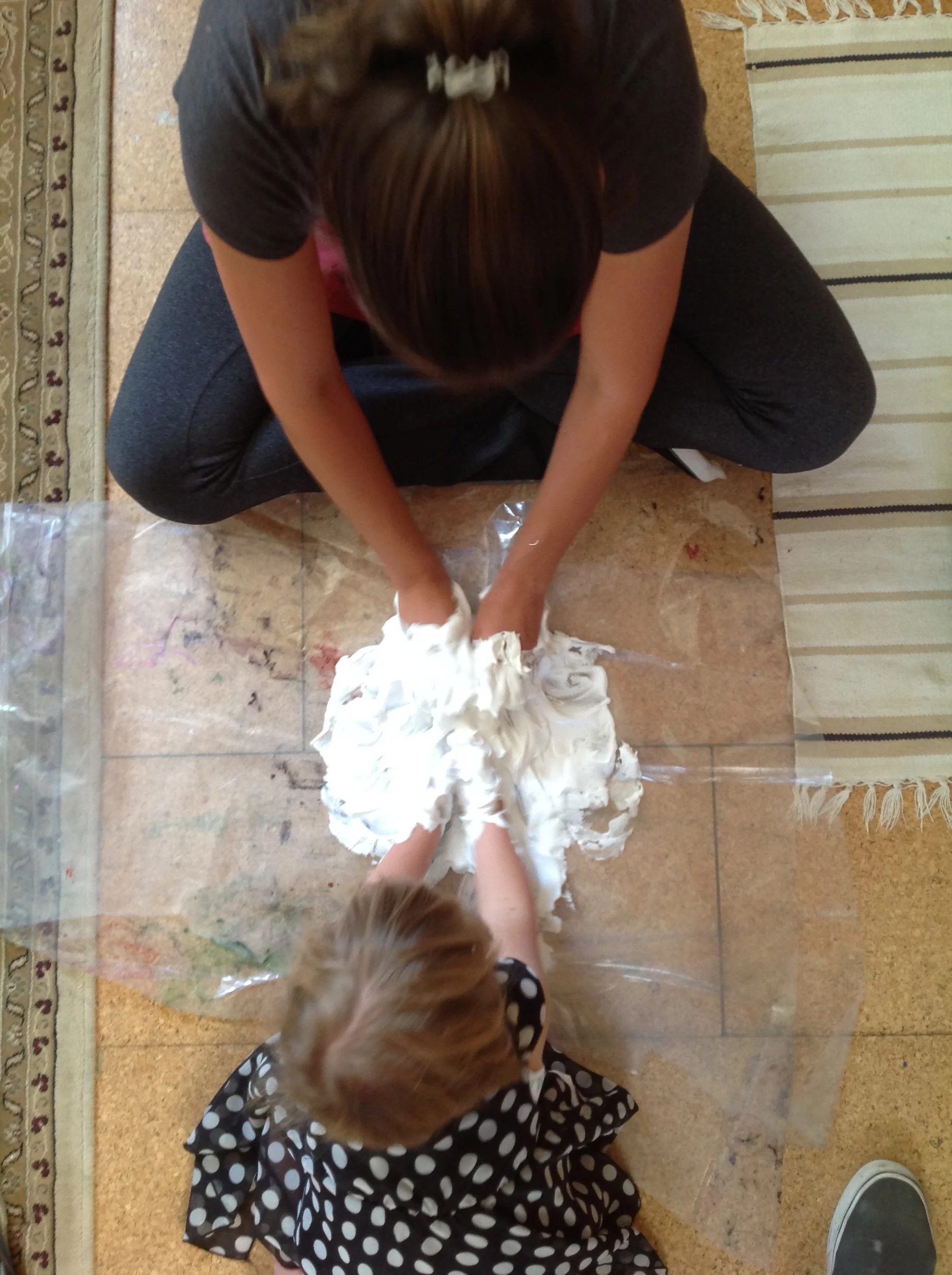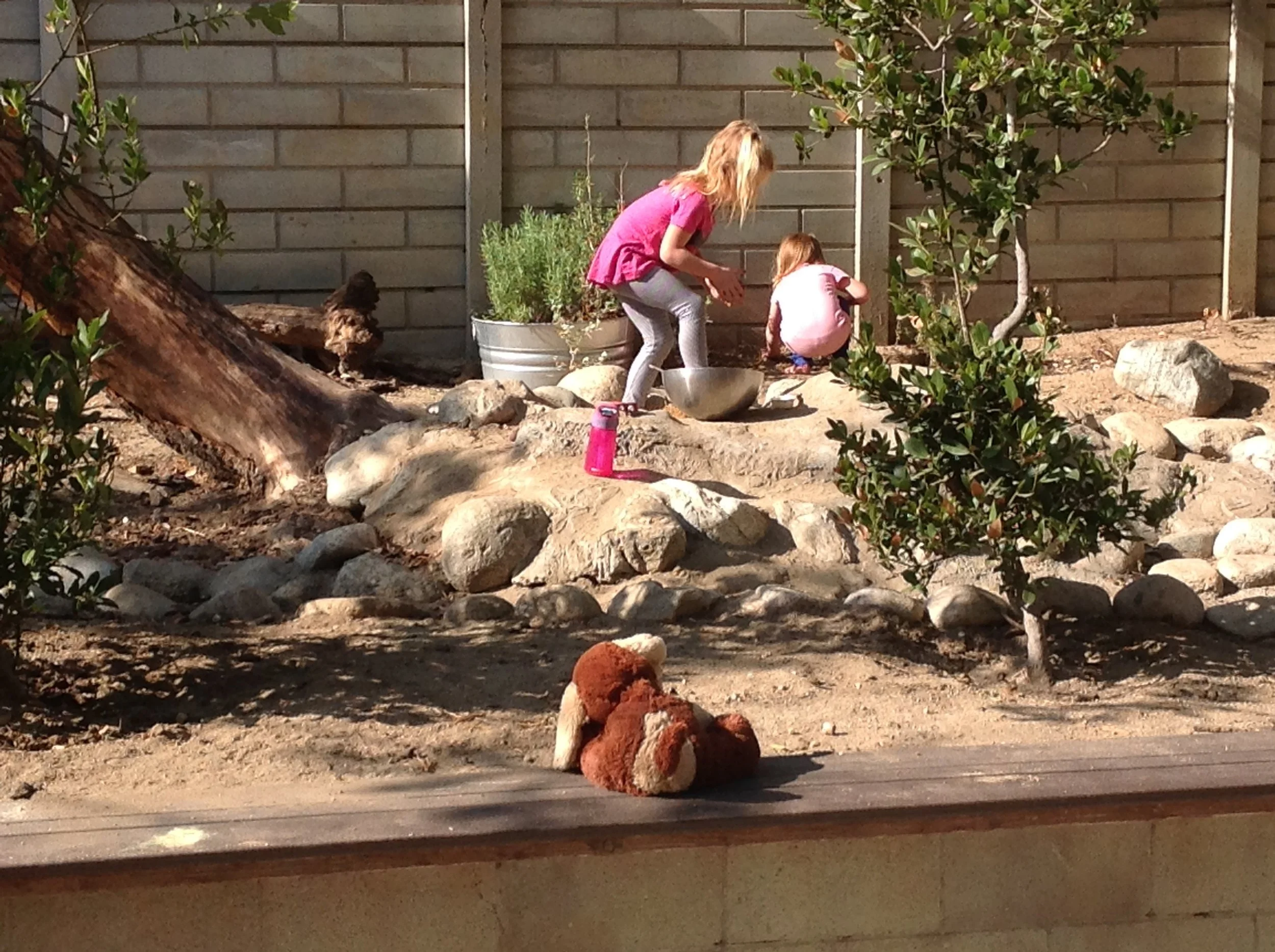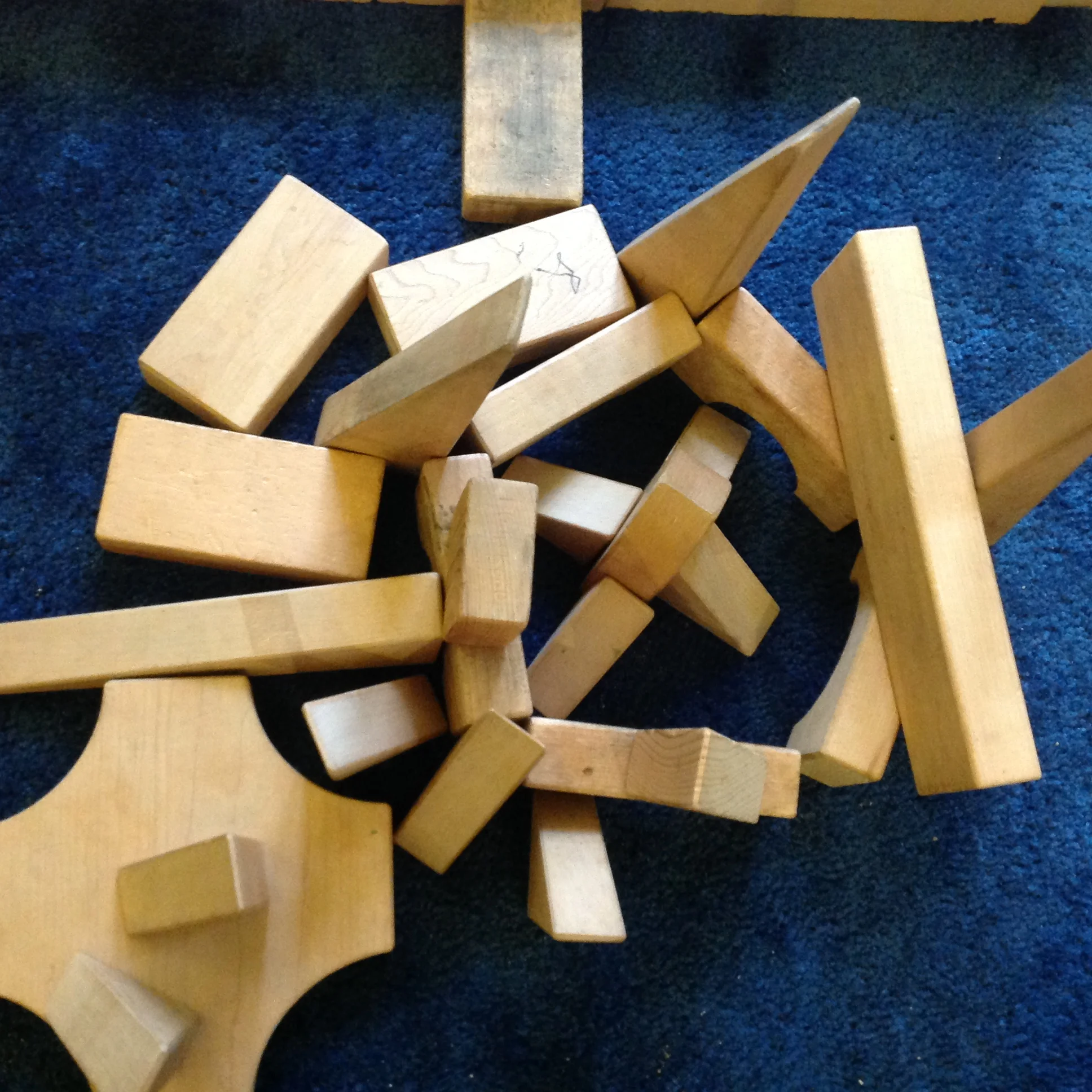The other day, my kids and I were at a friend’s house. My daughter came to sit at the table and eat a snack while the other kids were playing. After a minute, a child who lives there came up behind her, furious, glaring over her unknowing shoulder. We adults saw the problem.
Read MoreThis evening, as I sit in the glow of graduation day, eyes dry from crying, I just feel so profoundly grateful for the work we get to do. And I mean all of us: the teachers, the parents, and the kids, too. What we do here is hard, emotional work.
Read MoreThis Friday is Cottage’s annual tradition of filling our kids with forbidden sugar and setting them loose in the sandy wonderland of the yards in the evening, also known as the Ice Cream Social. When I was a parent of an infant and a toddler, I was filled with social anxiety…
Read MoreI cast the kids as powerful giants in a land of vulnerable little creatures. We humans can dominate, when we so choose.
Read MoreWe work day by day to enact our shared ideals about valuing and prioritizing child led play, connecting with nature, trusting children as the drivers of their learning, within the structure of a loving community. We listen to the kids, both through their words and through their behavior. We respond, support flowing into the space where it’s needed, and then giving them room when they can stand on their own two feet.
Read MoreIn revisiting our mission statement this week, as we move into a new era, I read something new that had never occurred to me before. In the past I had emphasized the terms, “child-directed”, “social emotional development”, and “conflict resolution”, and that has served me well in recreating the mission on the ground in our classrooms each day. But this time, as I read, there was a different part that stood out, as if in bold print, for the first time.
Read MoreAmong the most distinctive aspects of being a part of the Cottage community is the way we talk to each other, and we call it Cottage Speak.
Read MoreMy daughter loves to hear stories of terrible fates befalling people and animals. Dog bites, broken bones, illnesses, car crashes, and pet deaths are all favorite topics. She asks to hear them over and over, many stories in succession.
Read MoreYou know, one of our Cottage-speak catch phrases is “the Cottage way”. I used it in another post, without further explanation, because we are cultural insiders here. Families use it all the time at debrief and in our surveys, to indicate whether or not something was in line with our collective philosophy.
Read MoreTwenty years ago, when I was a Gender Studies major, long before my children were born, I had already started thinking about the great honor and responsibility of teaching my kids, daughters and sons, about consent.
Read MoreKids ask for help many times a day, for all kinds of reasons. Sometimes the task they need to do is too physically difficult for them to manage at the age and stage they are, like putting doll clothes over stiff little doll arms, or manipulating scissors to cut paper.
Read MoreThe other day, my kids and I were at a friend’s house. My daughter came to sit at the table and eat a snack while the other kids were playing. After a minute, a child who lives there came up behind her, furious, glaring over her unknowing shoulder. We adults saw the problem.
Read MoreAs adults, we often find ourselves being called to join kids in play when suddenly we hear, “Hey, stop!”, or, worse, surprised crying. Kids who, moments ago, appeared immersed in joyful cooperative play, are now facing off over some angry gesture. Imagine this is you. These children were in the middle of some kind of game that everyone was enjoying, and now one child is crying. What happened? What do you do?
Read MoreI don’t like to read the book, “No, David!”, by David Shannon. I can’t stand to hear myself in that grouchy mom having to face cleaning up another huge mess. But kids love it. They want to read it over and over. Kids understand why the mommy is yelling at little David, and they listen intently, scandalized. They understand quite well that his behavior is unacceptable.
Read More












